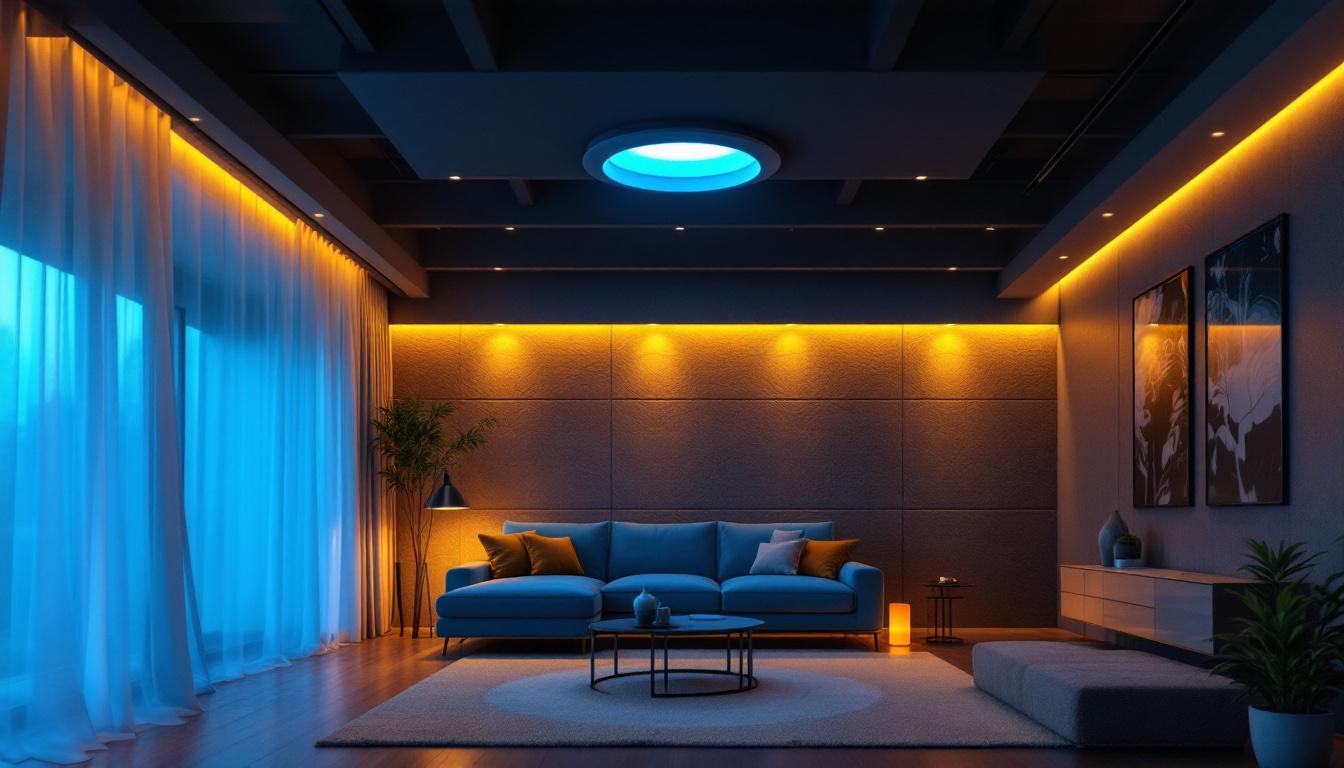
In recent years, solar-powered outdoor lighting has emerged as a transformative solution for both residential and commercial spaces. With advancements in technology and design, these systems not only provide illumination but also promote sustainability and energy efficiency. For lighting contractors, understanding how to leverage modern solar-powered solutions can enhance project offerings and meet the growing demand for eco-friendly options.
Solar lighting technology has come a long way since its inception. Early models were often criticized for their limited brightness and short operational lifespan. However, recent innovations have dramatically improved the efficiency and effectiveness of solar lighting systems.
Today’s solar lights utilize high-efficiency solar panels, advanced LED technology, and smart sensors. These components work together to optimize energy capture and usage, providing reliable lighting even in less-than-ideal weather conditions. As a contractor, staying informed about these advancements can help in selecting the best products for various applications.
Modern solar lights are designed to maximize energy efficiency. High-quality solar panels can capture more sunlight, converting it into usable energy even on cloudy days. This efficiency is further enhanced by the use of LED bulbs, which consume significantly less power than traditional incandescent or halogen bulbs.
Moreover, many solar lights now come equipped with motion sensors and dimming features. These technologies allow lights to adjust their brightness based on surrounding conditions and activity, further conserving energy and extending battery life. Some of the latest models even incorporate smart technology that connects to mobile apps, enabling users to monitor energy usage and customize settings remotely. This level of control not only enhances user experience but also promotes energy conservation, making solar lighting a more sustainable choice.
Durability is a crucial factor when considering outdoor lighting solutions. Modern solar lights are built to withstand various weather conditions, from heavy rain to extreme heat. Materials such as high-grade plastics and corrosion-resistant metals ensure longevity and reliability.
In addition to durability, aesthetic design has also improved. Solar lights are now available in a wide range of styles, suitable for different architectural themes and landscaping designs. This variety allows contractors to offer tailored solutions that meet the specific needs and preferences of their clients. Furthermore, many manufacturers are now focusing on eco-friendly designs, using recycled materials and sustainable production processes, which not only appeal to environmentally conscious consumers but also enhance the overall marketability of solar lighting products. As a result, contractors can confidently recommend solar lighting solutions that not only perform well but also align with the growing demand for sustainable living practices.
Integrating solar-powered lighting solutions offers numerous benefits, making them an attractive option for both contractors and clients. Understanding these advantages can help in effectively marketing these products and services.
One of the most compelling reasons to consider solar lighting is the potential for cost savings. By harnessing solar energy, clients can significantly reduce their electricity bills. Additionally, the installation of solar lights often incurs lower labor costs, as they do not require extensive wiring or electrical infrastructure.
Moreover, many regions offer incentives for using renewable energy sources, which can further offset initial investment costs. As a contractor, being knowledgeable about these financial incentives can help clients make informed decisions. Furthermore, the long lifespan of solar lights—often exceeding 25 years—means that clients can enjoy years of illumination without the burden of recurring replacement costs, making it a wise long-term investment.
Solar-powered lighting contributes to a reduction in carbon footprints, aligning with the growing emphasis on sustainability. By utilizing renewable energy, these systems help decrease reliance on fossil fuels and lower greenhouse gas emissions.
Promoting solar lighting solutions also positions contractors as environmentally responsible professionals, appealing to clients who prioritize sustainability in their projects. This alignment with eco-friendly practices can enhance a contractor’s reputation and attract a broader client base. Additionally, solar lights can be equipped with energy-efficient LED bulbs, which not only consume less power but also have a longer lifespan compared to traditional bulbs, further minimizing waste and environmental impact.
Furthermore, the use of solar lighting can enhance the safety and security of outdoor spaces. Well-lit areas deter potential intruders and provide a sense of security for residents and visitors alike. This added layer of safety can be a significant selling point for contractors, as clients increasingly seek solutions that not only beautify their properties but also protect them. By highlighting these features, contractors can effectively communicate the multifaceted benefits of solar-powered outdoor lighting to prospective clients.
The versatility of solar-powered lighting makes it suitable for a wide range of applications. Understanding these applications can help contractors identify opportunities for integration into various projects.
In residential settings, solar lights can enhance outdoor spaces such as gardens, pathways, and patios. They provide safety and security while adding aesthetic appeal. Options like solar path lights, garden spotlights, and decorative lanterns allow homeowners to customize their outdoor environments.
Furthermore, solar lights can be used to illuminate driveways and entrances, making homes more inviting while increasing safety for residents and visitors alike. Contractors can offer tailored solutions based on the specific needs and preferences of homeowners. With advancements in technology, many solar lights now come equipped with motion sensors and dimming capabilities, allowing for energy-efficient operation that adapts to the presence of people. This not only conserves energy but also extends the lifespan of the lighting fixtures, making them a smart investment for homeowners.
For commercial properties and public spaces, solar lighting can play a crucial role in enhancing safety and visibility. Parking lots, walkways, and parks can benefit from well-placed solar lights, which not only illuminate but also deter crime.
Additionally, solar lights can be integrated into signage and promotional displays, providing visibility without the need for extensive electrical installations. This flexibility allows contractors to propose innovative lighting solutions that meet the specific requirements of businesses and municipalities. Moreover, solar-powered lighting systems can be designed to accommodate smart technology, enabling remote monitoring and control. This capability can be particularly beneficial for municipalities looking to optimize energy use and reduce operational costs while ensuring that public spaces remain well-lit and safe at all times. The ability to adjust lighting levels based on real-time data can also enhance the user experience in parks and recreational areas, making them more enjoyable for visitors during evening hours.
While solar-powered lighting offers numerous advantages, there are several considerations that contractors should keep in mind during the installation process. Addressing these factors can ensure optimal performance and client satisfaction.
A thorough site assessment is essential before installation. Evaluating the amount of sunlight the area receives is crucial for determining the appropriate type and number of solar lights needed. Factors such as surrounding trees, buildings, and other obstructions can impact solar exposure and, consequently, the performance of the lighting system.
Contractors should also consider the intended use of the space and the required brightness levels. This assessment will guide the selection of suitable solar lighting products that meet both aesthetic and functional needs.
While solar lights generally require less maintenance than traditional lighting systems, they are not entirely maintenance-free. Regular cleaning of solar panels is necessary to ensure optimal energy absorption. Dust, debris, and snow can hinder performance, so contractors should inform clients about the importance of maintaining their solar lights.
Additionally, battery replacement may be necessary over time, depending on the quality of the components used. Educating clients on these maintenance requirements can help prolong the lifespan of the solar lighting systems and enhance their overall satisfaction.
The solar lighting industry is continuously evolving, with new trends and technologies emerging to enhance functionality and efficiency. Staying updated on these trends can provide contractors with a competitive edge in the market.
Smart technology is increasingly being integrated into solar lighting systems. Features such as remote control, smartphone apps, and automated scheduling are becoming more common. These advancements allow users to customize their lighting preferences and monitor energy usage from their devices.
As smart home technology continues to gain traction, offering solar lights with smart features can attract tech-savvy clients looking for convenience and control over their outdoor lighting solutions.
Improvements in energy storage technology are also on the horizon. New battery technologies promise longer lifespans and faster charging times, ensuring that solar lights can operate efficiently even in less-than-ideal conditions. This development will further enhance the reliability of solar-powered lighting systems.
Contractors should keep an eye on these advancements, as they can significantly impact the performance and appeal of solar lighting solutions in the future.
Modern solar-powered outdoor lighting presents a wealth of opportunities for lighting contractors. By understanding the advancements in technology, the benefits of solar lighting, and the various applications, contractors can effectively leverage these solutions to meet the growing demand for sustainable and efficient lighting options.
As the industry continues to evolve, staying informed about trends and best practices will be crucial for success. Embracing solar technology not only enhances project offerings but also positions contractors as leaders in the push toward a more sustainable future.
Ready to revolutionize your lighting solutions with the latest in solar-powered technology? At LumenWholesale, we provide lighting contractors with the highest quality, spec-grade outdoor lighting products at unbeatable wholesale prices. Say goodbye to local distributor markups and hello to superior lighting that meets the highest industry standards. With our hassle-free bulk buying and free shipping, you can trust that you’re getting premium lighting at the best value — without any hidden fees. Elevate your lighting projects today by visiting Wholesale Lighting at the Best Value and discover the perfect blend of quality, affordability, and convenience at LumenWholesale.

Discover how a 2 foot LED light boosts efficiency for lighting contractors, reducing energy costs by up to 50% and enhancing workspace illumination—learn more now!.

Explore the transformative role of porch lights ceiling in modern lighting solutions.

Discover the transformative impact of under cabinet lighting tape for lighting contractors.

Discover how the best recessed LED lights can transform your space, offering energy efficiency and sleek design.